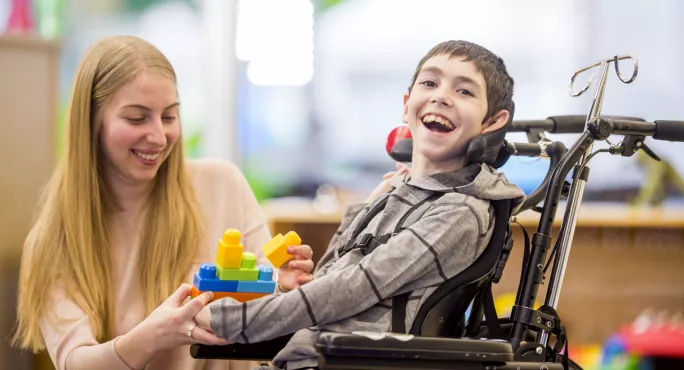Most parents and carers of children with special educational needs and disabilities do not feel school that is the best place for them during lockdown - but they need help with home learning, say researchers.
The findings are based on data collected by a University of York team from more than 400 SEND families across the country since the first day of the national coronavirus lockdown.
They found that, despite many children being entitled to a school place (as a “vulnerable” child), only 10 per cent of the sample took their place up, and that many families believed the risk of sending their child to school was “simply too great”.
Research: SEND children and families ‘need more help’
Coronavirus: 4 tips to support SEND students remotely
Teacher view: What does the lockdown mean for vulnerable children?
Writing for Tes, Umar Toseeb and Kathryn Asbury, lecturers at the University of York, said: “Some children with SEND have underlying health conditions that make them vulnerable to infection, and some experience mental health problems even in normal circumstances. This combination of elevated individual risk and rapid social change is likely to have a disproportionately negative impact on mental health.”
Coronavirus: Families of SEND pupils ‘need support’
Instead of going to school, most research participants wanted support to access education from home, and the researchers list examples of specific help that families need in the short term.
They state: “There has been a recent call from the children’s commissioner to get ‘vulnerable’ children back to school. Our data suggests that, although this may be appropriate for some vulnerable groups, it is not what most SEND families want or need.
“Instead, most participants in our study want to be supported to access education from home, like their neurotypical peers. This may involve providing increased resources to enable schools, child development centres and social care and charitable organisations to support some SEND families in their homes.”
Some parents said their children had become severely distressed and were displaying psychotic symptoms as a reaction to the losses they were experiencing.
“My daughter has started stimming [self-stimulating behaviour, such as the repetition of physical movements, sounds or words] constantly, has constant violent outbursts (which she doesn’t have often usually) and has started having night terrors,” said one parent.
Another mother said she felt like she was “drowning and nobody can see me”.
Toseeb and Asbury add: “The level of distress reported, in some cases by lone parents with no access to a break of any kind, suggests that support is urgently needed before the most vulnerable families reach crisis point.”
However, they also found positives, including benefits for children who are unhappy at school and stressed by many of the demands of daily life who were now able to stay safely at home with loved ones.




